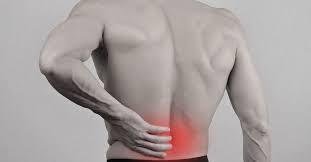Muscle pain is a common issue that can arise from various causes, including overuse, injury, stress, or underlying medical conditions. While medications can provide relief, many people prefer natural remedies to avoid potential side effects.
Fortunately, there are numerous
effective home remedies for soothing muscle pain naturally. This guide explores the best natural approaches to alleviate muscle pain, promote relaxation, and support overall muscle health.
1. Apply Heat Therapy
Heat therapy is one of the simplest and most effective ways to relieve muscle pain. It works by increasing blood flow to the affected area, which helps relax tight muscles and reduce stiffness.
How to Use Heat Therapy:
- Heating Pads: Place a heating pad on the sore area for 15–20 minutes. Ensure the pad is not too hot to avoid burns.
- Warm Compress: Soak a towel in warm water, wring it out, and apply it to the painful area.
- Hot Baths: Add Epsom salts or essential oils like lavender or eucalyptus to a warm bath and soak for 20–30 minutes.
When to Use Heat Therapy:
- For chronic pain or stiffness.
- Before stretching or exercising to loosen tight muscles.
2. Try Cold Therapy
Cold therapy is particularly effective for acute muscle pain or injuries, as it reduces inflammation and numbs the area to alleviate pain.
How to Use Cold Therapy:
- Ice Packs: Wrap an ice pack or a bag of frozen vegetables in a thin towel and apply it to the sore area for 10–15 minutes.
- Cold Compress: Soak a towel in cold water, wring it out, and apply it to the painful area.
- Cold Baths: For full-body muscle pain, take a cold bath or shower for 5–10 minutes.
When to Use Cold Therapy:
- Immediately after an injury or intense exercise.
- For swelling or inflammation.
3. Use Epsom Salt Soak
Epsom salt, or magnesium sulfate, is a natural remedy that helps relax muscles, reduce inflammation, and relieve pain. Magnesium is absorbed through the skin, promoting muscle relaxation and recovery.
How to Use Epsom Salt:
- Add 1–2 cups of Epsom salt to a warm bath and soak for 20–30 minutes.
- For localized pain, dissolve Epsom salt in warm water and apply it as a compress.
Benefits:
- Reduces muscle soreness and stiffness.
- Promotes relaxation and stress relief.
4. Incorporate Gentle Stretching
Stretching helps improve flexibility, reduce muscle tension, and prevent stiffness. It’s especially beneficial for muscle pain caused by overuse or inactivity.
Effective Stretches for Muscle Pain:
- Hamstring Stretch: Sit on the floor with one leg extended and reach for your toes.
- Neck Stretch: Gently tilt your head to one side, bringing your ear toward your shoulder.
- Cat-Cow Stretch: On your hands and knees, alternate between arching your back (cow) and rounding it (cat).
Tips for Safe Stretching:
- Stretch slowly and avoid bouncing.
- Hold each stretch for 20–30 seconds.
- Stop if you feel sharp pain.
5. Massage the Affected Area
Massage therapy helps increase blood flow, reduce muscle tension, and promote relaxation. You can perform self-massage or use tools like foam rollers or massage balls.
How to Massage Sore Muscles:
- Use your hands, knuckles, or a massage tool to apply gentle pressure to the sore area.
- Focus on tight knots or trigger points.
- Use a natural oil, such as coconut or olive oil, to reduce friction.
Benefits:
- Relieves muscle tightness and pain.
- Improves circulation and mobility.
6. Stay Hydrated
Dehydration can exacerbate muscle pain and cramping. Drinking enough water helps maintain muscle function and prevent stiffness.
Hydration Tips:
- Drink at least 8–10 glasses of water daily.
- Increase water intake during exercise or hot weather.
- Include hydrating foods like watermelon, cucumber, and oranges in your diet.
7. Consume Anti-Inflammatory Foods
A diet rich in anti-inflammatory foods can help reduce muscle pain and promote recovery. These foods contain nutrients that combat inflammation and support muscle health.
Top Anti-Inflammatory Foods:
- Fatty Fish: Salmon, mackerel, and sardines are rich in omega-3 fatty acids.
- Berries: Blueberries, strawberries, and raspberries are packed with antioxidants.
- Leafy Greens: Spinach, kale, and Swiss chard are high in vitamins and minerals.
- Nuts and Seeds: Almonds, walnuts, and flaxseeds provide healthy fats and protein.
- Turmeric: This spice contains curcumin, a powerful anti-inflammatory compound.
How to Incorporate These Foods:
- Add berries to your breakfast smoothie.
- Include fatty fish in your meals 2–3 times a week.
- Use turmeric in soups, stews, or teas.
8. Try Herbal Remedies
Certain herbs have natural pain-relieving and anti-inflammatory properties that can help soothe muscle pain.
Effective Herbal Remedies:
- Ginger: Known for its anti-inflammatory properties, ginger can be consumed as a tea or added to meals.
- Turmeric: Mix turmeric powder with warm milk or water to create a soothing drink.
- Arnica: Apply arnica gel or cream topically to reduce pain and swelling.
- Chamomile: Drink chamomile tea to relax muscles and reduce stress.
Precautions:
- Consult a healthcare provider before using herbal remedies, especially if you are pregnant, breastfeeding, or taking medications.
9. Practice Yoga and Mindfulness
Yoga combines gentle stretching, strengthening, and relaxation techniques that can help alleviate muscle pain and improve flexibility. Mindfulness practices, such as meditation, can also reduce stress-related muscle tension.
Beginner-Friendly Yoga Poses:
- Child’s Pose: Stretches the lower back and hips.
- Downward Dog: Stretches the hamstrings and calves.
- Cat-Cow Stretch: Promotes spinal flexibility.
Mindfulness Tips:
- Practice deep breathing exercises for 5–10 minutes daily.
- Use guided meditation apps or videos to help you relax.
10. Use Essential Oils
Essential oils are natural remedies that can help relieve muscle pain through their anti-inflammatory and analgesic properties.
Best Essential Oils for Muscle Pain:
- Lavender: Promotes relaxation and reduces pain.
- Peppermint: Provides a cooling sensation and relieves soreness.
- Eucalyptus: Reduces inflammation and improves circulation.
- Rosemary: Eases muscle tension and pain.
How to Use Essential Oils:
- Dilute a few drops of essential oil with a carrier oil (e.g., coconut or almond oil) and massage it into the sore area.
- Add a few drops to a warm bath or diffuser.
11. Get Adequate Sleep
Sleep is essential for muscle recovery and pain relief. Poor sleep can exacerbate muscle pain and delay healing.
Tips for Better Sleep:
- Maintain a consistent sleep schedule.
- Create a relaxing bedtime routine.
- Avoid screens and caffeine before bed.
- Ensure your sleeping environment is comfortable and quiet.
12. Stay Active
Regular physical activity helps prevent muscle stiffness and promotes overall muscle health. Low-impact exercises like walking, swimming, or cycling are ideal for relieving muscle pain.
Exercise Tips:
- Start with gentle activities and gradually increase intensity.
- Warm up before exercising and cool down afterward.
- Avoid overexertion, which can worsen muscle pain.
13. Apply Apple Cider Vinegar
Apple cider vinegar has anti-inflammatory properties that can help reduce muscle pain and soreness.
How to Use Apple Cider Vinegar:
- Mix 1–2 tablespoons of apple cider vinegar with a glass of water and drink it daily.
- Add a cup of apple cider vinegar to a warm bath and soak for 20–30 minutes.
14. Use Magnesium-Rich Remedies
Magnesium is a mineral that plays a key role in muscle function and relaxation. A deficiency can lead to muscle cramps and pain.
How to Increase Magnesium Intake:
- Eat magnesium-rich foods like spinach, almonds, and dark chocolate.
- Take a magnesium supplement after consulting a healthcare provider.
- Apply magnesium oil topically to the sore area.
15. Practice Good Posture
Poor posture can strain muscles and lead to pain, especially in the neck, shoulders, and back.
Posture Tips:
- Sit with your back straight and shoulders relaxed.
- Use ergonomic furniture and accessories.
- Take breaks to stretch and move if you sit for long periods.
Conclusion
Natural home remedies can effectively soothe muscle pain and promote relaxation without needing medications. Incorporating heat and cold therapy, Epsom salt soaks, stretching, massage, and anti-inflammatory foods into your routine can alleviate discomfort and support muscle health. Additionally, yoga, mindfulness, and proper hydration can help prevent future muscle pain. Always listen to your body and consult a healthcare provider if your symptoms persist or worsen. With these natural remedies, you can achieve lasting relief and improve your overall well-being.



